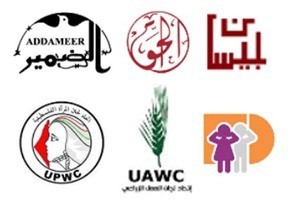Campaign Against Human Rights NGOs Continues, as Foreign Funding Bill is Revived & Public Petitions to the Israeli Supreme Court are Threatened
Attempts to impose severe restrictions on human rights organizations' ability to receive foreign funding have been revived mere days after Prime Minister Netanyahu decided to freeze two proposed bills. On 22 November 2011, Yisrael Beitenu, headed by the Foreign Minister Avigdor Lieberman, announced that it would introduce the legislation to the Knesset for preliminary reading, avoiding the need to earn approval from the governing coalition. Lieberman and his party are supporting a bill sponsored by MK Faina Kirshenbaum that would impose a crippling 45% tax on donations from 'foreign state entities' to any public institution which does not receive financial support from the state.
The latest announcement is a response to Netanyahu's decision, on 20 November 2011, to shelve or freeze the bills indefinitely. That decision came one week after the Ministerial Committee for Legislation had approved the two proposals: one from Likud MK Ofir Akunis which would impose a ban on foreign government funding to "political organizations" (human rights organizations), and the Kirshenbaum bill. Both aim to impose severe restrictions on human rights organization's ability to receive foreign donations, and by extension, to operate. The bills are:
"The Associations Law (Amendment – Banning Foreign Diplomatic Entities' Support of Political Associations in Israel)," which attempts to set monetary limitations on Israeli human rights organizations. According to this bill, an Israeli NGO that seeks to influence state policies ("a political organization") would not be allowed to receive donations of more than NIS 20,000 (roughly US $6000 or EUR 4,000)
"Bill for amendment of the Income Tax Order (Taxation of public institutions that receive donations from a foreign state entity) – 2011" , which seeks to amend the Income Tax Order so that funding from foreign state entities to Israeli NGOs will be subject to a 45% taxation rate. This bill is liable to prevent foreign governments from funding such organizations.
Israeli and international human rights organizations, the European Union and EU member states, the US and Canada, journalists and opposition political leaders have condemned the bills as draconian and anti-democratic, and have urged the government to rescind its approval of them.
This recent attempt is not the first time that Knesset members and the government coalition have targeted foreign funding as a way to silence civil society and human rights organizations. The bills are a part of an ongoing, calculated policy to silence voices of dissent and criticism and go hand in hand with attempts to restrict Israel's Supreme Court, the media, and human rights activists.
Several statements against the two proposed laws include:
In addition to these bills, new legislation was proposed to restrict human rights organizations in their petitioning of Israel's Supreme Court. A bill authored by Likud MKs Yariv Levin and Danny Danon was presented in the Ministerial Committee for Legislation on 27 November 2011, where it was voted down unanimously. The bill is an attempt to weaken the Supreme Court, and undermine human rights organizations, which often submit petitions to the court on matters of public interest and constitutional concern.
The bill creates several obstacles to civil society groups presenting "public petitions" before the court. Firstly, it would prevent organizations which are registered outside Israel or whose main activities are not in Israel, for example Palestinian human rights organizations in the Occupied Palestinian Territory (OPT), from submitting petitions. Secondly, it would disallow organizations in Israel from filing petitions in their names alone; an individual who is affected by the law must also be a petitioner. Thirdly, it would require petitioning organizations to report to the court on any foreign funding that they receive so that the court is aware of possible "irrelevant motives of interested or hostile groups" in bringing the case.
The bill has been criticized by Israeli human rights NGOs. Prime Minister Netanyahu came out against the bill on 26 November 2011, shortly after Deputy Prime Minister Dan Meridor threatened to resign from the government should the bill pass.
For more information, see also:
http://www.haaretz.com/print-edition/news/israeli-justice-minister-asked-to-drop-high-court-petitions-law-1.397548
http://www.haaretz.com/news/national/deputy-pm-threatens-resignation-over-bill-to-limit-israel-high-court-1.397855
Urgent call of 18 NGOs in Israel regarding severely restrictive funding bills
Message from six political foundations in Germany, calling for the rejection of the draft law













